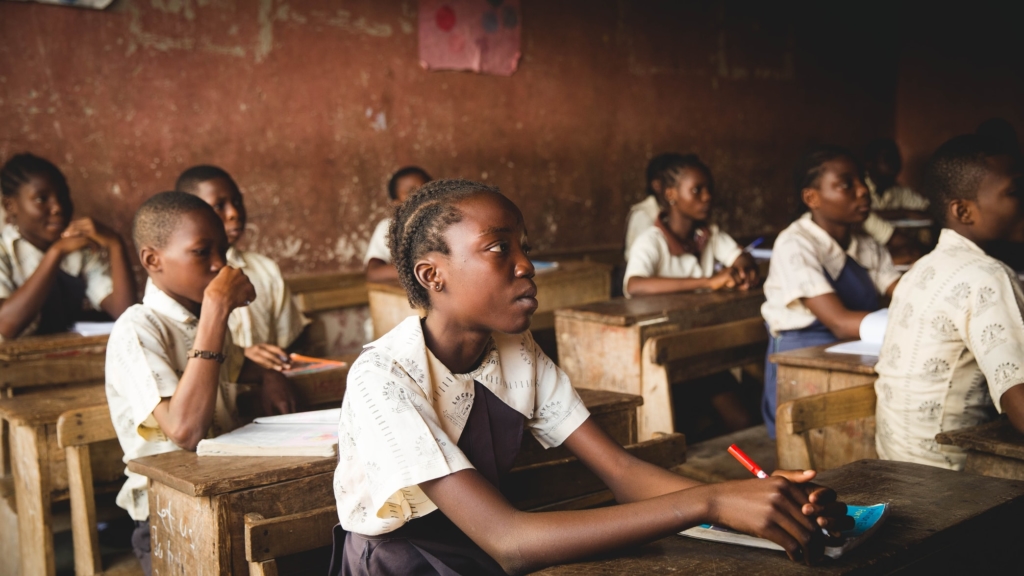Country Background

Since gaining independence in 1960, Nigeria has suffered waves of political instability, including half a dozen coups, decades of military rule, and a civil war (1967–1970) that claimed up to two million lives. Despite efforts by the elected government and Nigerian military to eradicate Boko Haram, the terrorist group has sustained its presence in the country. In 2015, Muhammadu Buhari won the presidency by promising to crush two scourges that had plagued the nation for years: endemic corruption and a war with Islamist extremists. Buhari has been largely unsuccessful in keeping his promises but in March 2019 he was re-elected in what most watchdog organizations consider an unfair election. While some areas enjoy basic access to rights and freedoms, much of the northeast of the country has faced sectarian violence, largely at the hands of Boko Haram, and communal violence remains a substantial risk.
What Nonprofits Need to Know
Below in the blue is an overview of the humanitarian and peacebuilding needs in Nigeria. In the red are the primary sanctioned groups presently operating there. Because U.S. law prohibits the provision of “material support” to listed terrorists individuals and groups as well as engaging in trade with sanctioned persons and entities, the presence of these groups and sanctions programs can impact the delivery of aid and peacebuilding programs. The list below is non-exhaustive and changes frequently, so it is important for nonprofits to check all partners and those with whom they engage in transactions against, at a minimum, the U.S. Specially Designated National (SDN) and the United Nations Security Council Consolidated lists. Below the charts is information on OFAC licenses, where applicable, and links to our research and advocacy, and other relevant information.
Humanitarian &
Peacebuilding Needs
According to the latest Humanitarian Needs Overview by OCHA, 7.9 million people are in need of humanitarian assistance.
Food Security and Nutrition: In the course of 2019, the food insecurity in northeastern Nigeria has significantly increased. According to OCHA, 1.1 million children and women are in need of immediate nutrition services.
Natural Hazards: Nigeria experiences frequent climate shocks, which increase the population’s vulnerability, such as torrential rains. Flash flooding has created humanitarian emergencies in areas of north-eastern Nigeria. The rapid depletion of the Lake Chad Basin, due to climate change and overuse, also contributes to instability and insecurity.
Disease and Healthcare: In conflict-affected areas routine vaccinations have been interrupted for several years which increases the risk of disease outbreaks, including cholera, hepatitis E, meningitis, and measles. More than half of the deaths recorded in Borno State are due to malaria, more than all other causes of death combined. Outbreaks of measles, acute bloody diarrhea, typhoid fever, and leishmaniasis were reported in various areas of the country throughout 2019.
Ongoing Hostilities: The crisis is characterized by grave violations of human rights. Waves of displacements are caused by insecurity, increased attacks by non-state armed groups, and military operations conducted in response.
Displacement: Over 1.8 million people are still internally displaced and in need of urgent assistance. Hundreds of thousands of displaced families lack adequate shelter and sanitation. In Borno State, civilians are particularly exposed to landmines and other explosive hazards (new and old).
Gender-based violence (GBV): Women and children constitute 81% of the overall crisis population and 87% of the new displacements. The mobility of women and girls is significantly restricted, and they are subject to high levels of demoralization and trauma.
Boko Haram: Formed in 2002 and headquartered in northern Nigeria. Designated as a terrorist group by the United States and under the UN ISIL (Da’esh) & Al-Qaida Sanctions List. More information here.
Islamic State of Iraq and ash-Sham (ISIS)-West Africa: Founded in 2002, this jihadist terrorist organization has been aligned with ISIS since 2015. This group maintains its largest presence in northeast Nigeria along the border with Niger and in the Lake Chad region. Designated as a terrorist group by the U.S. in 2018. More information here.
“Lake Chad is shrinking while the population is exploding. It’s a challenging situation. With less land, less rainfall, these are very unique problems for the country”
Nigerian President Muhammadu Buhari during UN General Assembly, September 2019
Licenses offered by the Office of Foreign Assets Control (OFAC)
The Office of Foreign Assets Control (OFAC) within the U.S. Department of Treasury enforces sanctions programs. It has a licensing process that allows transactions with sanctioned entities, including listed terrorist groups, that would otherwise be unlawful. Nonprofits that operate in areas affected by sanctions often apply for licenses from OFAC so that they are able to provide services to civilians in conflict zones around the world without running afoul of U.S. sanctions law, engage in peacebuilding activities and more. Find more information here.
- Apply for an OFAC License Online – Authorization from OFAC to engage in a transaction that otherwise would be prohibited.
Policy Reform
The Charity & Security Network advocates for change in national security measures to better support nonprofits working around the world. In fragile contexts, counterterrorism measures often impede humanitarian, development, and peacebuilding organizations from accessing finance for their programs and serving populations in need. Find out more on our key issues below:
Useful Links
- CFR: Nigeria Security Tracker
- ICNL: Nigeria
- CIA World Factbook: Nigeria
- International Crisis Group: Nigeria
last updated: May 18, 2020
